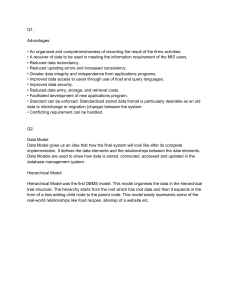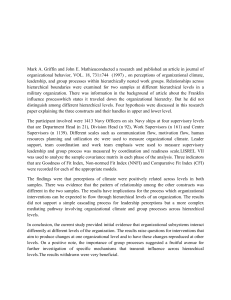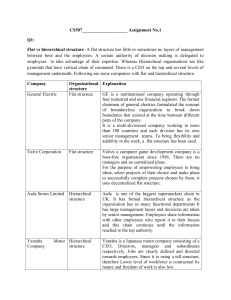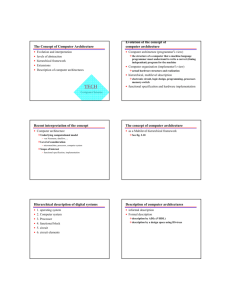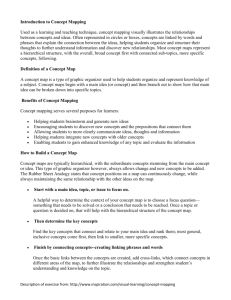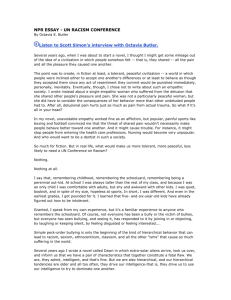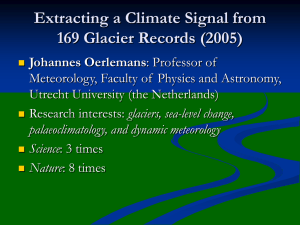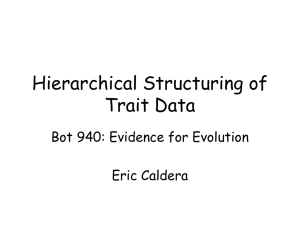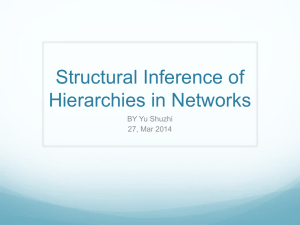Tree-Maps: Visualizing Hierarchical Data Hench Qian & Bill Shapiro September 21, 1999
advertisement
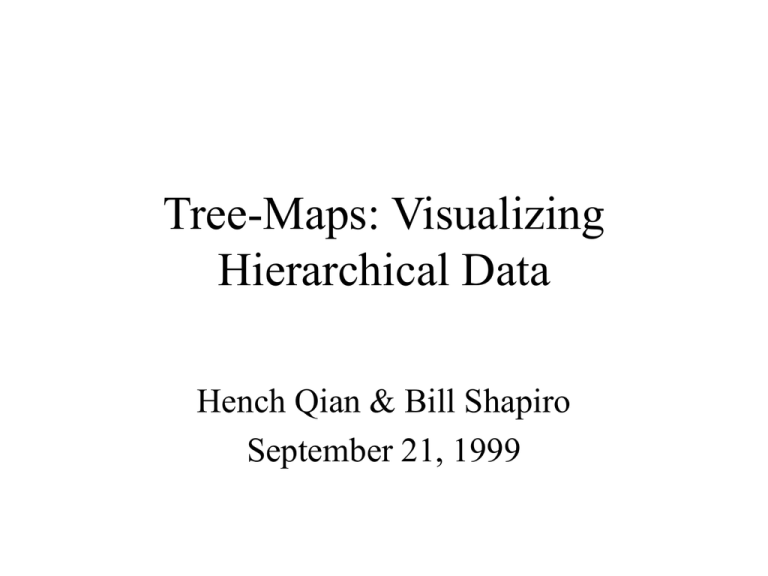
Tree-Maps: Visualizing Hierarchical Data Hench Qian & Bill Shapiro September 21, 1999 Problem • Representing hierarchical data – Structural information – Content information • Objectives – – – – Efficient Space Utilization Interactivity Comprehension Esthetics Favorite Sentence • Most people come to understand the content and organization of these structures (hierarchical information) easily if they are small, but have great difficulty if the structures are large. Traditional Methods • Outlines (e.g., Windows Explorer) Traditional Methods • Tree Diagrams (WebView, University of Pittsburg) • Text-based tools (e.g., ls in UNIX) An Alternative: Tree-Maps • Problems with traditional methods: – Lots of dead space – Difficult to represent large number of items • Tree-Maps – Utilize 100% of display space – Scalable to thousands of items Tree-Maps How It Works Example: TennisViewer Critique • Strengths – Utilizes 100% of display space – Shows relationships between nodes through size and color – Can effectively display large data sets • Weaknesses – – – – Size comparison may be difficult Cluttered display Difficult to discern boundaries Shows only leaf content information Other Hierarchical Visualization Tools • Docuverse (University of Pittsburg) – Containers (file directories) are shown as pie segments – Documents (files) are shown as colored dots within pie segments – Can represent a large number of items (~3000) – Utilizes a fraction of the display space -shows 3502 files in 164 directories -pie segments represent # of links to each directory/file -Color represents age of files Docuverse Other Hierarchical Visualization Tools • Hyperbolic Trees (Xerox/Inxight) – Dynamically warps display to zoom in on areas of interest – Good for interactive browsing – Does not provide a good overview of the entire dataset – Demo
